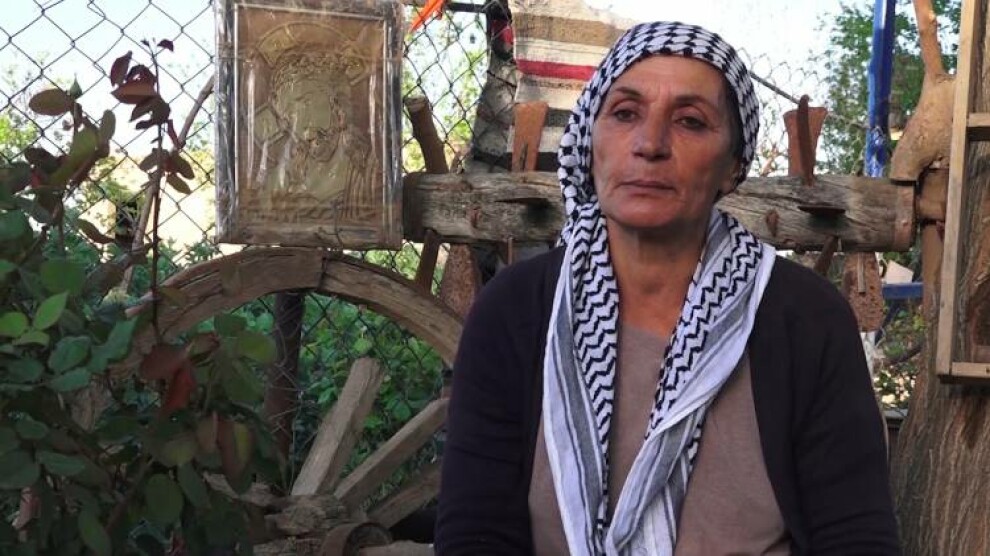Antique collector Werdia also works as farmer
Werdia Daniel collects historical artifacts to protect them and she also works as a farmer. She describes herself as a friend of time.

SORGUL ŞÊXO
Hesekê – As technology advances, the traces of people and their cultural items begin to be forgotten. Surely, we are not talking about the thousands of years of historical artifacts that define a people and culture but cultural items left by our mothers, grandmothers, and their grandmothers. 63-year-old Syriac Werdia Daniel has collected the items from her own “history” that defines her female identity and has traces of her grandmothers.
Their villages were burned, their churches were bombed
On February 23, 2015, ISIS attacked Syriac (Assyrian) villages located on the banks of the Habur River in the Tal Tamir town of NE Syria’s Hesekê city. 230 Syriac people were abducted and most of them were killed by ISIS. Their villages were burned down and their churches were bombed. After the Syriac villages were liberated by the Syrian Democratic Forces (SDF), the Syriac people began to rebuild their lives but nothing can be the same as before.
In the southern of Til Cedaya village, there is a house where two Syriac sisters live in. 63-year-old Werdia Daniel, a farmer who understands the spirit of the land, has begun to collect the antiques that remind her culture. We visited her at her home to speak to her.
Werdia: My village has a long history
“My village has a long history. As Assyrian people, we are an ancient civilization. We have lived with Kurds, Arabs, and Turkmens in this region. We have been engaged in farming and animal husbandry. I was born here. My village is my soul and heart. I cannot breathe in cities. And if I don’t work or produce, I cannot feel I am alive, I will fall sick,” said Werdia when she talked about her village.
Werdia pointed out that the old furniture in her house was her grandparents’ furniture. “All the furniture I'm collecting right now belongs to my grandparents. I collect everything such as knives, forks, hammers, axes, birdcages, bells, bowls, and many more,” Werdia said.
Werdia told us that ISIS wants to destroy all cultural values. She places all belongings of her grandparents next to each other like they are always together.
“We kept these items in a room before the attacks took place on February 23, 2015. But Daesh attacked our village. Our house was burned down. The old items were also burned. They were left on the streets…Then, we returned to the village and began to collect them. We cleaned them and hung them on the walls. I remember my grandfather whenever I see them. I remember the ancient Assyrian history and culture and feel the essence of life. Each of these items is at least a hundred years old. I know some of them are more than 250 years old.”
Werdia is also an expert farmer
Werdia is also a skilled farmer. “I don’t have only old items but also lands, grapevines. I plant vegetables according to seasons. I have worked as a farmer for 25 years. I plant wheat and rye. I work alone. This year, I only planted 2.000 grapevines, before we had planted more but the water level of Habur River reduces. I live in nature and have an indescribable life. Each tree represents my life. I have their soul and they have my soul.”
Werdia thinks she protects the culture and history of Syriac people by collecting the old items. “Today, we are defenders of our history, culture, and existence. I protect the culture and history of Syriac people by collecting the old items.”
